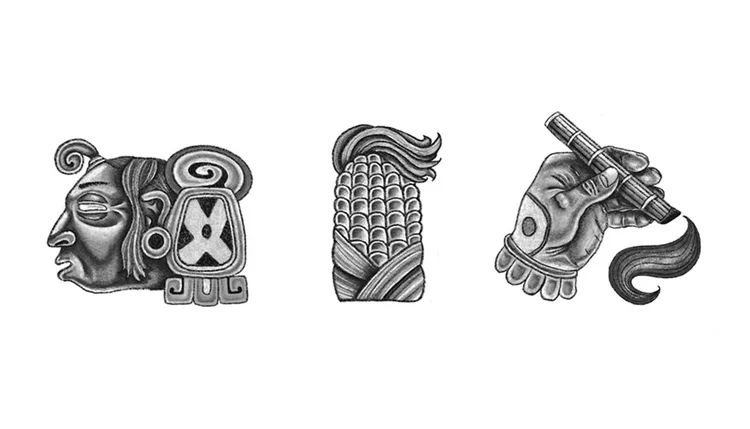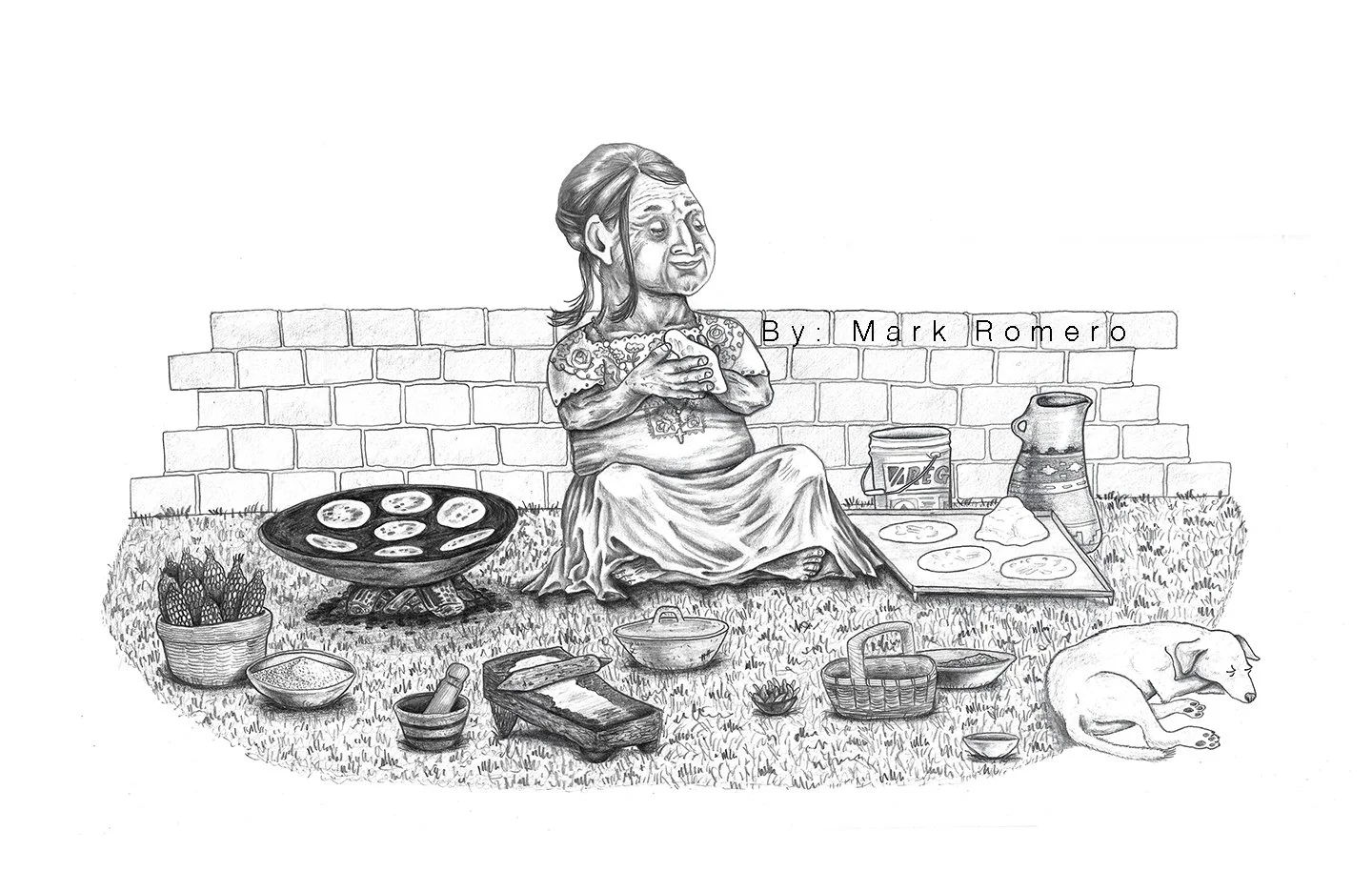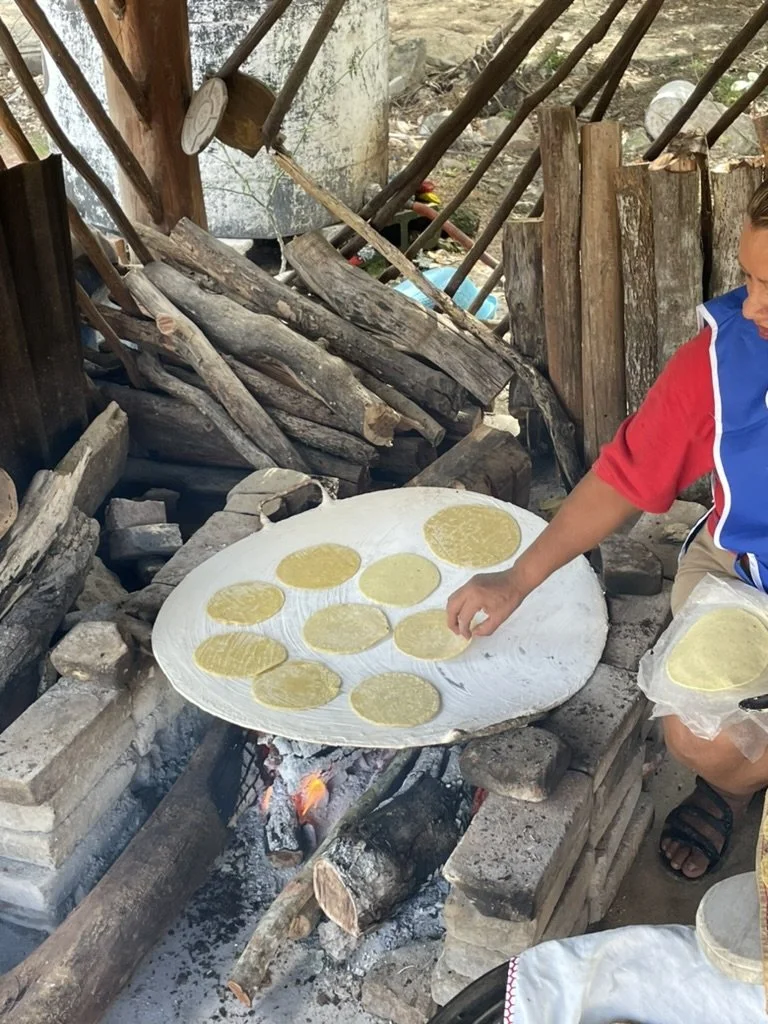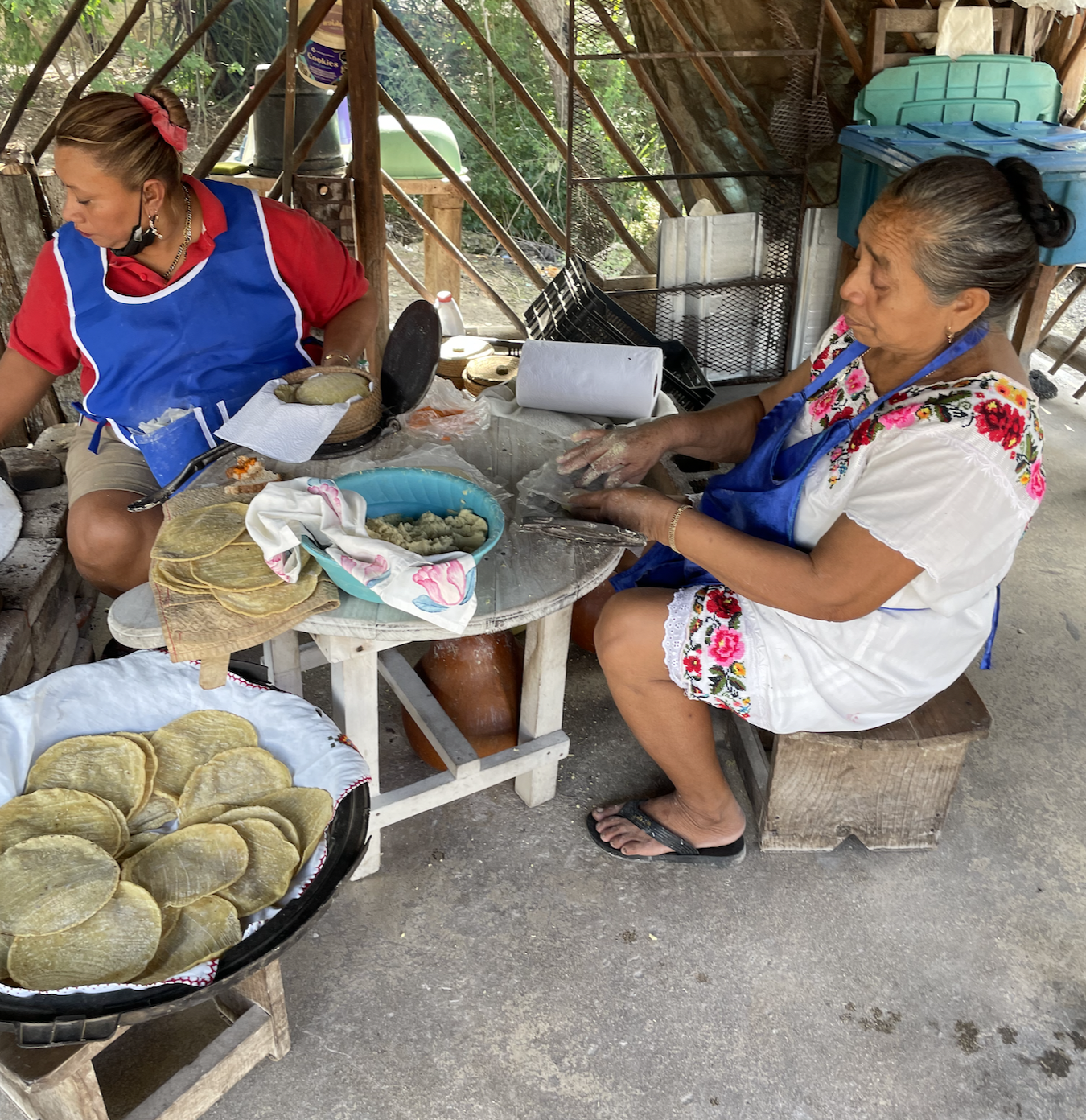Tortillas, Hechas a Mano - 19” W x 13” H, Pencil on Paper (digital print)
The process of making tortillas by hand is deeply rooted in Mesoamerican culture and has had significant cultural, social, and culinary importance that continues to shape modern-day cuisine in countries like Mexico, Guatemala, El Salvador, Honduras, Nicaragua, and Costa Rica.
Cultural Significance in Mesoamerica:
Ritual and Identity: The act of hand-making tortillas was historically a communal activity, especially among women, and it remains a significant cultural and familial practice. The tortilla represents unity, and even in modern times, it’s a link between the past and the present. It also acts as a symbol of cultural identity, especially in regions where indigenous practices continue to thrive.
Connections to Modern-Day Mexico and Central America:
A Central Element of Cuisine: Today, tortillas are a foundational component of the cuisines of Mexico, Guatemala, El Salvador, Honduras, Nicaragua, and Costa Rica. While modern mass production of tortillas exists, many families continue to make them by hand, maintaining the tradition. The tortilla serves as a base for a variety of dishes, from tacos and enchiladas in Mexico to pupusas in El Salvador and repocheta in Nicaragua. The diversity of fillings and toppings reflects the regional culinary traditions, but the tortilla remains central.
Cultural Continuity: The making of tortillas by hand serves as a tangible connection to the past. In many rural regions, the technique has been passed down through generations, and it represents cultural preservation, especially in indigenous communities. For many, it is more than just a way of preparing food—it is an act of cultural survival and resistance against the homogenization of global food systems.
In summary, the cultural significance of making tortillas by hand is not only about food; it’s a connection to the land, the people, and the ancestors who cultivated the corn and developed the practices that are still alive today. The tortilla, as both food and cultural symbol, remains a bridge between the ancient Mesoamerican world and the present, central to the daily lives and identities of people across these countries.
Homún, MX, photo by Cristina Romero @recuerdosyfotos
Homún, MX, photo by Cristina Romero @recuerdosyfotos



